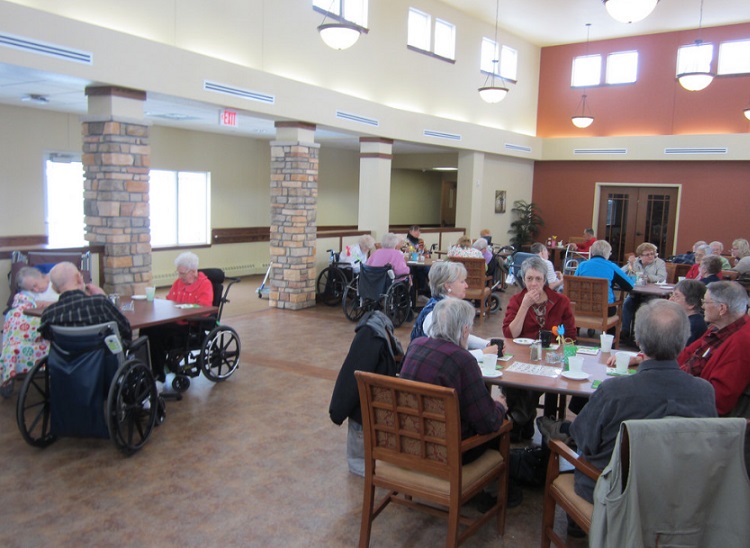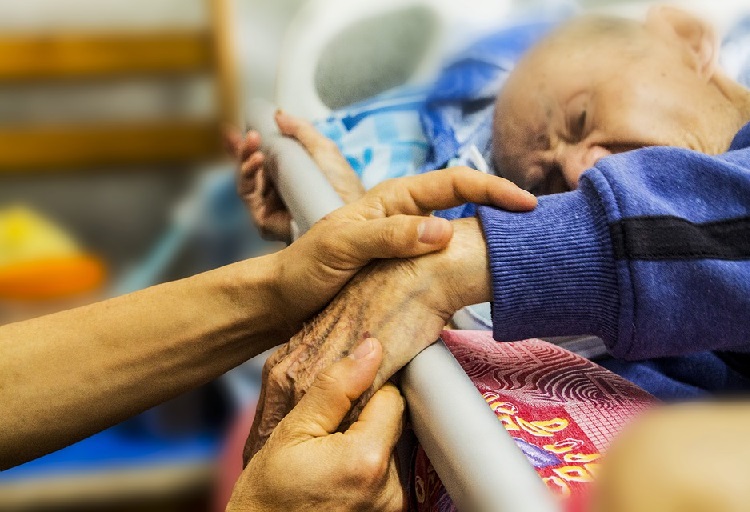Why Doesn’t America Prioritize Elder Care?
No one ever said growing old was a job for the feint of heart, but in America, many seniors face tougher hardships than dealing with increasing aches and pains. Ever-rising numbers of elderly Americans experience financial hardships that prevent them from fully enjoying their golden years. Additionally, many suffer health woes, and prescription drug costs are unlikely to drop anytime soon.
Pressures on this vulnerable population grow harder to bear every day. Rising medication prices coupled with shrinking Social Security benefits force many American seniors into poverty. Lack of quality health care options for seniors unable to live independently pose further problems for many of America’s elderly.
Many Can Never Fully Retire
As the baby boomer generation nears retirement age, many find they lack the financial resources they once counted on. Due to the series of recessions Americans experienced in recent years, many who lost jobs due to mass layoffs had to drain their IRA accounts to buy basic necessities while unemployed.
Age discrimination, while prohibited by law, nevertheless continues to occur, resulted in many boomers experiencing lengthier unemployment periods. Additionally, due to nearly 40 years of wage stagnation, those who did find work after losing a job found that the starting salary left them paid at an entry-level wage instead of one more appropriate for their education and experience. This made rebuilding raided retirement accounts difficult.
I recently spoke with one of my older friends who lost his well-paying tech job during the Great Recession. He described at length how the new job he found at age 55 pays the same wage he earned at age 22. Like many, he relied on early withdrawals from his 401k — and not only did he pay hefty tax penalties for doing so, his retirement funds may never return to their previous levels even if he worked well into his 70s.
For retirees on Social Security, many find that despite cost-of-living adjustments (COLA) in current years, they nevertheless fail to keep up with rising inflation. COLA adjustments have only kept up with half of the rising costs people pay for basic necessities. While the COLA adjustment for 2019 seems beneficial on the surface, Medicare costs have also risen so dramatically, many seniors will find the added monthly money gets gobbled up by medical expenses.
Many able-bodied seniors now find themselves working well into their golden years simply to survive financially. Some choose to combine retirement travel dreams by downsizing into RVs and touring the country all the while working odd jobs along the way. Others push back the date at which they accept the gold watch to rebuild savings as long as they retain the ability to handle the nine-to-five grind.

Challenges to Staying in Their Homes
For many elderly people, the thought of leaving the home they grew up in and perhaps inherited from their parents causes anxiety and suffering. In decades past, seniors unable to manage all the tasks required for daily living relied on family members to help with lawn mowing and trips to the market. But because many workers today hold multiple jobs, they lack the time to care for mom and dad the way they’d like to.
Home health care services help seniors with the economic means keep the same address. However, rising expenses put this possibility out of financial reach for many. Even when they can afford home care, the low wages earned by those working as aides has decreased the number of workers entering the field, resulting in shortages. Even something as simple as lacking moving fees can prevent seniors from getting the care they need.
Issues Accessing Medical Care
Prescription drugs prices have skyrocketed in recent years, making maintaining their health a struggle for elderly Americans. Manufacturers continually seek to grow profits by pricing medicines out of reach for all but the wealthy, and since the U.S. fails to negotiate drug prices the way other developed nations do, seniors end up bearing the brunt of the costs.
Lacking the means to afford prescription medications leads many older Americans to develop far more serious diseases. Health professionals have long known that practicing preventative measures such as participating in senior-oriented exercise classes and taking medications as prescribed improve patient outcomes. However, while some Medicare supplements cover the cost of these types of programs and memberships, some cannot afford the premiums, and others live too far from the nearest facility accepting such insurance.
The Sorry State of Nursing Homes
I’ll never forget the sense of despair I felt the last time I traveled to celebrate my great grandma’s birthday. My great grandma, like many her age, lived in a senior facility. Her tiny bedroom contained four occupied beds, and one roommate couldn’t hear the television without blaring it at near rock-concert levels. Though it was clear the nurses tried to create a welcoming, homey feel as best they could with scant supplies, the place still had the depressing, institutional feel of a psychiatric ward.
This is the heartbreaking reality many seniors in nursing homes face, and meanwhile the Trump administration has made even finding assisted living more stressful on America’s elderly. Republican cuts to Medicaid means many seniors who previously qualified for nursing home care coverage no longer do.

Losing Basic Human Rights
Even seniors physically healthy enough to remain at home with occasional nursing care must fear asking for aid out of fear of losing their basic right to make their own health care decisions. Some states grant nurses guardianship status, allowing them to override patient wishes and ship seniors off to homes without their consent.
A recent case study in the New Yorker followed one such case of elderly eviction. States with guardianship laws which allow health care providers to supersede the desires of their senior patients put older Americans at risk of scams from greedy facilities wishing to pad their pockets by liquidating the assets of those they force into homes, presumably to pay for the unwanted care.
We should never allow strangers to take away someone’s right to decide for themselves how to spend their golden years, perhaps unless infirmities like Alzheimer’s render them incapable of making their own choices. Even then, the law should safeguard seniors by allowing family members, not anonymous health care aides, to be involved in making decisions on the best course of care.
We Need to Do Better
Making it to retirement age used to be considered an accomplishment in itself, and historically, society has venerated the wisdom of the elderly and held them in high esteem. We need to stop providing minimal care for maximum profits, and we need to cease viewing older Americans as disposable. It’s dehumanizing, and there is simply no room for it in a civilized society.
